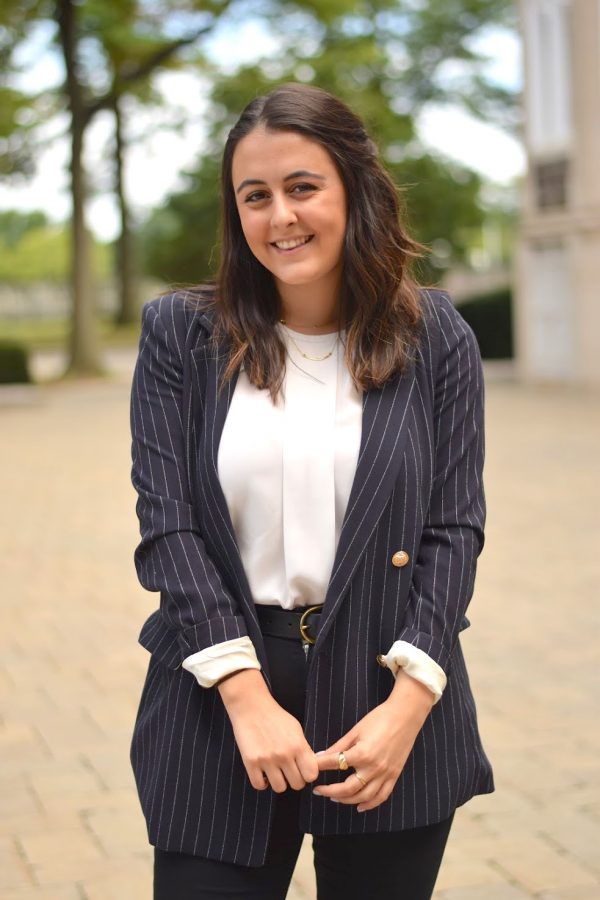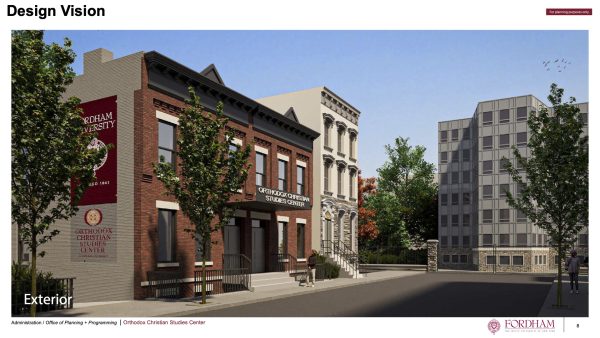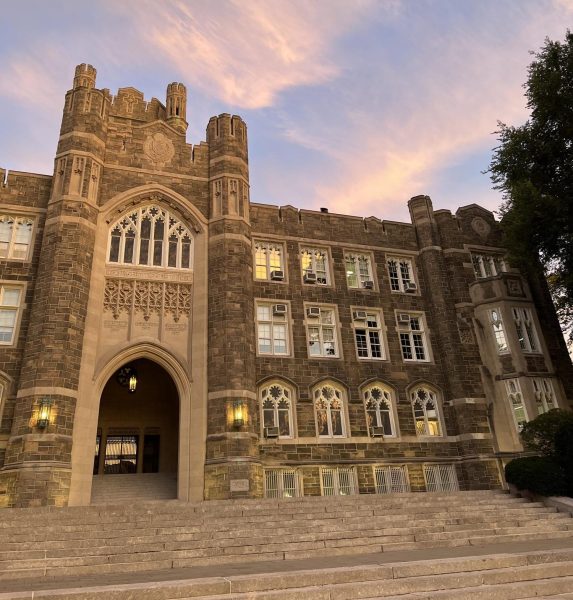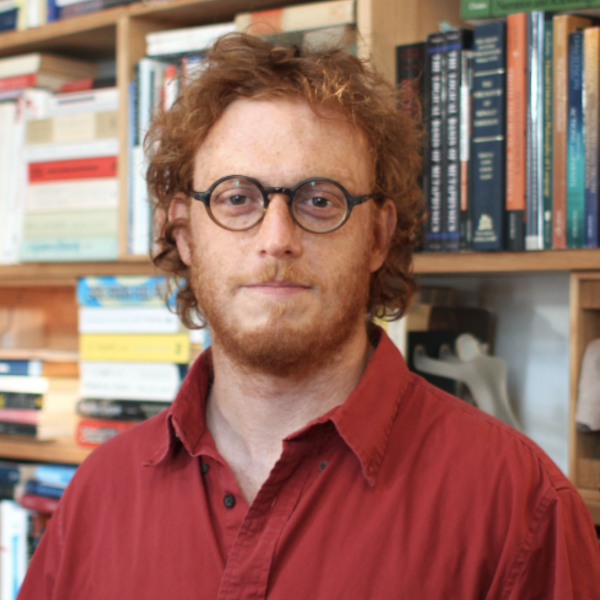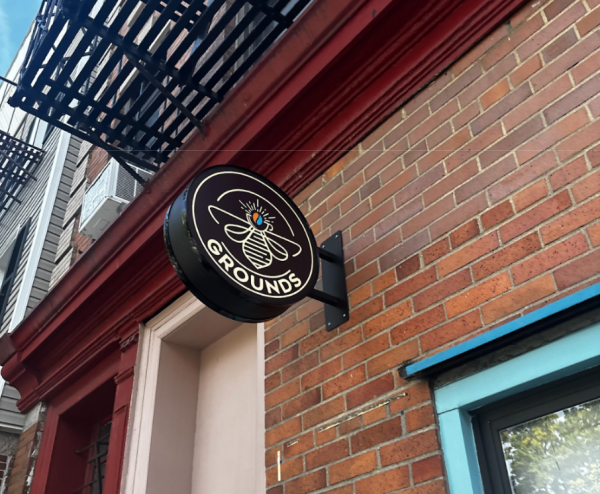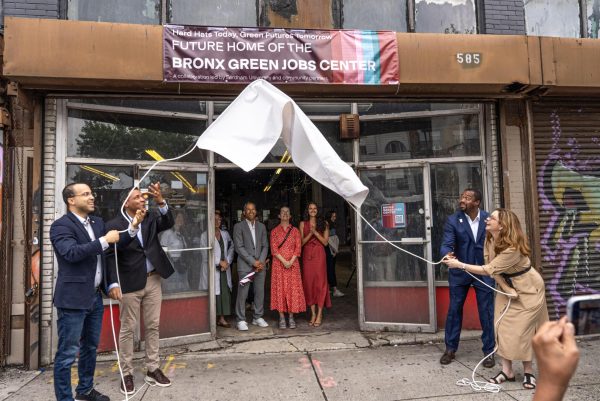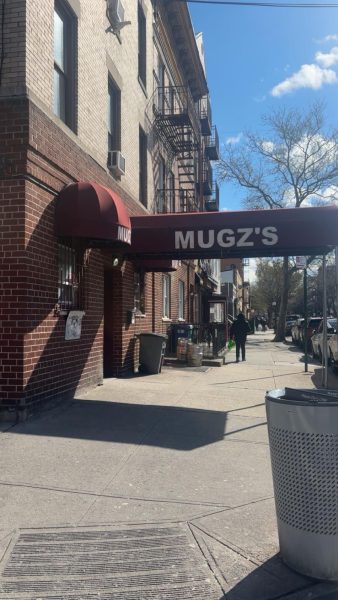Student Researches New York City Housing System
Jenna Koury researched the NYC housing system in the Bronx. (Courtesy of Jenna Koury)
When Jenna Koury, FCRH ’20, worked with the Department of Human Rights Housing Investigations Unit as a sophomore, she noticed a pattern of minority women, people with disabilities and domestic violence survivors losing their housing and unable to find new permanent housing. Working under her boss from that internship, Marleny Rubio, Koury developed a research project that she hoped could help some of these women find permanent housing.
Koury originally wanted to connect with some of the women who had lost their housing and share their personal stories as a part of her project, but as she progressed she realized if she stuck with the government housing organization, there would be too much red tape that could stop her from meeting individuals.
So Koury started to work with the Bronx chapter of the Violence Intervention Program (VIP). The organization caters primarily to the Latino community and provides emergency housing to domestic violence survivors with no questions asked. Participants have 90 – 160 days in the program’s housing and during that time they are supposed to use New York City’s voucher program to find permanent housing.
At the start of Koury’s research, New York City had a complicated voucher system to help people move out of shelters. With seven different vouchers, Koury said it could be very confusing — even as she studied it full time.
“Each of them had different income requirements, different family member requirements and immigration status,” said Koury. “It was so confusing for me and all I was doing all summer was researching them so you can imagine a woman who is trying to find housing, is working and is trying to take care of her children, there’s no time to research this.”
Rather than create a report, Koury started to look at how the voucher system discriminated against the women VIP helped. Her goal was to create a packet that could explain to the women at VIP which vouchers they were eligible for and how to use them.
Right as Koury came to the conclusion of her research, the City of New York seemed to agree that the system needed to change and rolled out an entirely new voucher system.
“I would love to go back and see if this new voucher system changed anything for these women,” said Koury. “Because what we were seeing over the summer is that they would go in and find an apartment they loved and then the voucher would tell the landlord they were victims of domestic violence and while the landlords didn’t actually say, ‘Oh, we don’t want you.’ You could tell maybe the fear of the boyfriend or husband coming back and causing trouble meant they wouldn’t want these women in their housing.”
Koury said she always thought it was crazy that vouchers told landlords why people were eligible for low income housing. When women were denied housing, Koury watched as they would essentially be pushed back into the shelter system and have to wait six months to be eligible for another voucher. If they managed to find a landlord who would accept their voucher, they would have to go through even more bureaucracy and have the New York City Housing Authority (NYCHA) inspect the housing they had chosen. NYCHA’s inspection process often takes weeks, according to Koury, and by the time someone comes to check the apartment, the landlord has moved on to a different tenant.
“Every situation was against them and it was just hard because a lot of them were dealing with immigration status as well,” said Koury. “As my research went on it just got deeper and deeper into these things and more complicated.”
Koury also noticed all sorts of systems of inequality within public housing systems, both in New York and across the country.
“A lot of buildings are split in half,” said Koury. “They’ll have regular housing and low income housing within it and a lot of times with the regular housing you get to go through a prettier lobby and the low income housing has to go through a back entrance or on the side and I think that’s an example of how society is still segregating and it’s just by class now.”
Koury will graduate from Fordham in the spring with majors in political science and Middle Eastern studies. She then plans to take a gap year before heading to law school. In the future, she wants to be a criminal defense attorney and work for the Federal Defenders Office or the Innocence Project. he said she is grateful to have earned a research grant and hopes to continue her research.
“Fordham students are super blessed to have the opportunity to get these research grants,” said Koury. “I was able to focus my whole summer into doing this so if you think of an idea I say go for it but definitely be passionate about what you’re looking at because humanities research can get so dense.”





































































































































































































